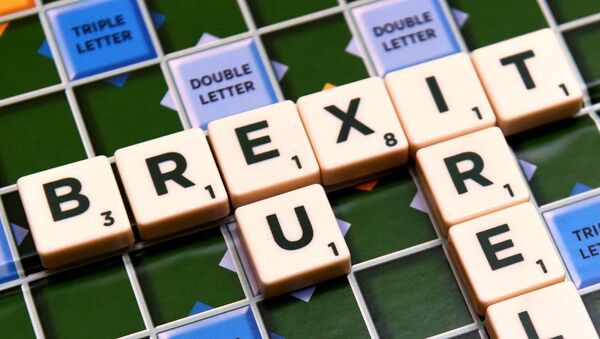On April 28, as European Union leaders were finalizing guidelines for Brexit negotiations, EU Council President Donald Tusk set out the bloc's trio of key priorities that "must come first" — "people, money and Ireland."
Before discussing EU-UK future, we must first sort out our past. This is the only possible approach to Brexit talks.https://t.co/D2qIqhvBtu
— Donald Tusk (@eucopresident) April 28, 2017
That the emerald isle should top fundamental initial concerns along with ensuring the rights of EU citizens residing in Britain, and settling any outstanding fees owed by the UK to the bloc and vice versa, may have surprised many. However, what was initially taken by some to be a provocative if frivolous swipe at UK leaders was soon revealed to be very real, with published guidelines making clear member state governments have indeed effectively committed themselves to allowing Northern Ireland to rejoin the EU under the auspices of a united Ireland — without conditions or negotiations.
To say the least, the EU's position has seismic implications. For one, it recognizes what the UK government and committed Brexiteers have failed or refused to — Great Britain and the United Kingdom are separate entities (as the UK's full name — the United Kingdom of Great Britain and Northern Ireland — makes clear).
Moreover, it makes clear the EU is recognizing the UK's constituent parts have autonomy over their affairs, and regions that opted to be part of the bloc — as Northern Ireland did — can't be subject to forced, permanent separation by Westminster. The EU's position is not, however, that Northern Ireland as an independent entity can remain in the EU — rather, Northern Ireland being part of the bloc is contingent on it joining (or, rejoining) the Republic. Londonderry is essentially being offered two unions for the price of one — and given Northern Ireland voted to remain by 56 to 44 percent, the offer may be a strong incentive.
Nonetheless, potential hurdles remain. Most notably, a united Ireland depends on a united Northern Ireland. The March elections to the Northern Irish Assembly saw Unionist parties lose their majority in Stormfront for the first time since its creation in 1998 — but while hailed by Sinn Fein as a sign voters were in favor of a united Ireland, Matthew Whiting, Research Associate in the Center for Trust, Peace and Social Relations at the University of Coventry, attributed the result more to voters reacting to perceived incompetence among Unionist leaders, and a higher turnout among non-Unionist voters.
Furthermore, while support for remaining in the EU was high in Northern Ireland, even a painful Brexit may not be sufficient to convince a majority of citizens to leave the UK. Polling on the issue of Irish unification presents a conflicting picture, with some polls suggesting overwhelming support for remaining part of the UK, and others indicating high support for a united Ireland — just not yet. Both Catholic and Protestant voters seem reticent to embrace unification in the immediate future.
Whatever becomes of Brussels' offer of Northern Irish readmission, the bloc's positioning on the issue will undoubtedly add fuel to Scotland's aspirations to be part of the EU in some way, shape or form — pro-independence Scots have hitherto failed to make a convincing case for how this could be achieved, and the EU has offered little encouragement in that direction.
Much of the debate has centered on whether Spain, which is battling Catalonian independence aspirations, would permit them to stay, or rejoin — evidently, the Northern Irish example provides a palpable precedent that former members of a united country won't be left out in the cold.
For all the flag waving and patriotic rhetoric that has abounded since June 23 2016, Brexit could mean some of the UK's member states depart their own union.





